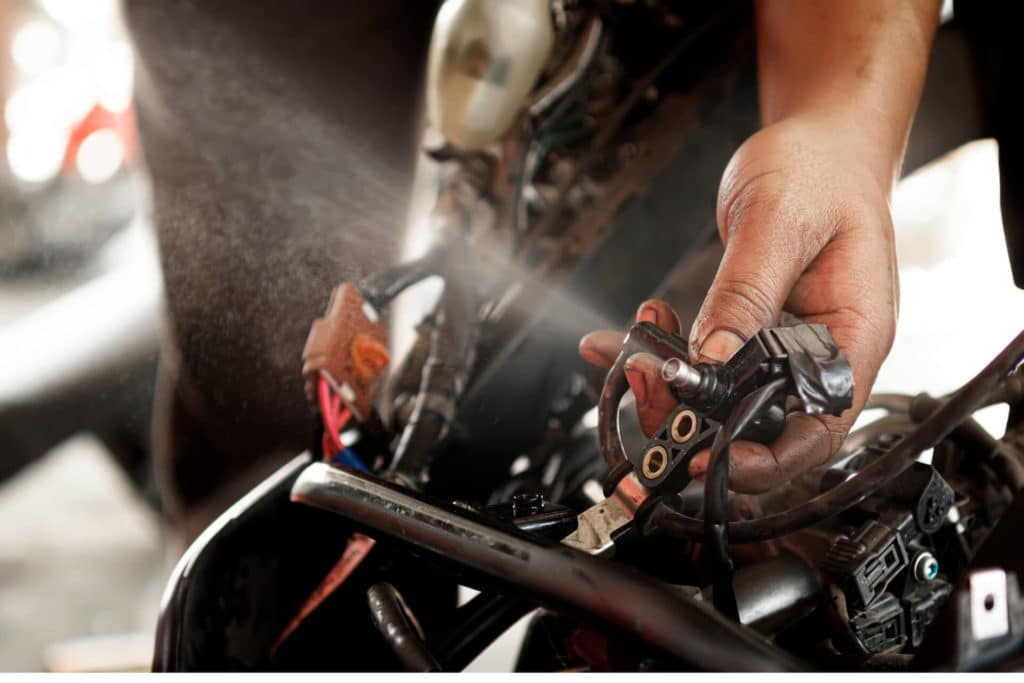Repair Information
Don’t let fuel injectors “steal” your horsepower!
What is a fuel injector in automobiles?
A fuel injector is an electronically controlled valve that delivers pressurized fuel from the vehicle’s fuel pump. It atomizes the fuel into a fine mist and mixes it with air before injecting the mixture into the combustion chamber. During the piston’s compression stroke, the air-fuel mixture is heated to its ignition point, powering the engine.
In most gasoline engines, fuel injectors are mounted on the intake manifold near each cylinder head. Diesel engines typically position the injectors directly within the cylinder head itself. This strategic placement ensures optimal air-fuel mixing and combustion efficiency for each specific engine design.
Working Principle
Before exploring solutions for faulty fuel injectors, it’s essential to understand their fundamental operation:
- Fuel Delivery:
The fuel injector is a precision device that delivers precisely metered droplets of fuel into the combustion chamber at programmed intervals.
- Timing Control:
The Engine Control Unit (ECU) dynamically calculates injection timing and duration based on multiple parameters including engine speed, load, and operating conditions.
- Atomization:
Proper fuel atomization creates an optimal air-fuel mixture, enabling complete combustion for maximum power output and efficiency.
Any disruption in this process – whether from wear, clogging, or electrical faults – creates a cascading effect that compromises overall engine performance, fuel economy, and emissions.
The Role of Fuel Injectors
Fuel injectors serve as the heart of an engine’s combustion process. Their primary function is to deliver precisely metered fuel into the combustion chamber at exactly the right moment and in optimal form. This precision is critical for maximizing combustion efficiency, power output, and fuel economy.
- Fuel Atomization:
A defining characteristic of modern fuel injectors is their ability to atomize fuel into microscopic droplets. This atomization process is vital because smaller fuel droplets have greater surface area, enabling more thorough mixing with air. The resulting improved air-fuel mixture leads to more complete combustion, directly translating to increased power and reduced emissions.
- Precision and Timing:
Contemporary fuel injectors are engineered for exceptional metering accuracy and timing precision. This ensures the exact required fuel quantity is injected precisely when needed, optimizing the combustion cycle. Timing is particularly crucial – premature or delayed injection can significantly compromise engine performance and emissions output.
How Fuel Injectors Enhance Vehicle Performance
Understanding how fuel injectors work naturally leads to recognizing their performance benefits:
- Increased Power Output
Properly functioning injectors promote efficient combustion, boosting power generation in each combustion cycle. This translates to improved acceleration and overall engine responsiveness. After injector maintenance or upgrades, mechanics often observe measurable horsepower gains – typically 3-5% on modern engines when restoring optimal spray patterns.
- Enhanced Fuel Economy
Counterintuitively, performance improvements often yield better mileage. Complete combustion means extracting maximum energy from each fuel droplet. Modern direct injection systems demonstrate 10-15% fuel efficiency gains compared to port injection, proving this principle. The improved energy conversion directly benefits both daily drivers and performance enthusiasts.
- Reduced Emissions
Precision atomization minimizes unburned hydrocarbons through more complete combustion. Advanced injectors can reduce particulate emissions by up to 50% in GDI engines when properly maintained. This environmental benefit helps vehicles meet increasingly stringent global emissions standards like Euro 6 and EPA Tier 3.
Why Do Fuel Injectors Get Dirty?
The primary cause of fuel injector fouling stems from the fuel itself. Gasoline contains waxy compounds that, when evaporated, leave behind varnish-like deposits on the injector’s needle valve. These deposits typically form after engine shutdown—heat from the engine causes residual fuel in the injector nozzle to evaporate, leaving concentrated contaminants behind. Over time, these deposits accumulate inside the nozzle, restricting fuel flow and disrupting the injector’s spray pattern, which can lead to poor atomization, incomplete combustion, and reduced engine performance.
The Importance of Regular Fuel Injector Cleaning
Fuel injectors play a critical role in delivering precisely metered fuel into the combustion chamber. Over time, however, fuel additives, dirt, and other contaminants can accumulate on injector components. These deposits restrict fuel flow, leading to inefficient combustion and degraded engine performance.
1. What happens when a fuel injector fails?
A faulty injector disrupts the air-fuel mixture in its cylinder, causing misfires and reduced engine power. In severe cases, it can lead to catalytic converter damage due to unburned fuel.
2. Is it safe to drive with a bad fuel injector?
Driving with a faulty injector is technically possible for a limited time, but it’s a risky gamble that can lead to cascading engine damage and expensive repairs down the road.
3. Diesel vs. Gasoline Injector Failures
Diesel fuel injectors operate under significantly higher pressure than gasoline counterparts, with failure most notably manifesting as thick black smoke – a telltale sign of incomplete combustion due to insufficient high-pressure atomization. Modern diesel injectors require mandatory ECU reprogramming after replacement to maintain proper engine calibration, as the system’s extreme precision demands exact fuel mapping.
Regarding maintenance costs: diesel injectors command premium pricing, particularly common-rail variants where individual units frequently exceed ¥3,000. This cost premium reflects their engineered tolerances – some precision components are measured in microns. Furthermore, diesel injectors demonstrate particular sensitivity to fuel quality; contaminated or substandard diesel accelerates wear exponentially, potentially halving component lifespan compared to proper fuel maintenance.
4. Why Would a New Fuel Injector Fail Prematurely?
A recently replaced fuel injector can fail again due to three primary causes:
- Contaminated Fuel System – A clogged or overdue fuel filter allows debris to enter and block the injector’s precision nozzles.
- Failing High-Pressure Pump – Irregular fuel pressure strains the injector, causing erratic spray patterns or mechanical stress.
- Uncalibrated ECU – The engine control unit may still reference old injector data, leading to improper fuel delivery.
5. Can Cleaning Fix Bad Injectors?
Whether fuel injector cleaning can completely resolve performance issues depends entirely on the specific condition of the component. For minor carbon deposits affecting fuel atomization, using quality fuel additives over three consecutive tank refills often yields satisfactory results. More stubborn accumulation may require professional ultrasonic cleaning, which proves effective for significant yet non-mechanical fouling.
Critical limitations exist: Cleaning cannot remedy physical damage such as failed solenoid valves, severely worn needle valves, or any leakage issues – these conditions necessitate complete injector replacement. Following ultrasonic cleaning, comprehensive testing is mandatory. Professionals should conduct precise flow rate measurements across all cylinders; if variance exceeds 10%, this indicates irreparable damage that will compromise engine performance. In such cases, replacement becomes the only viable solution to restore optimal operation.
This technical approach ensures proper diagnosis before committing to either cleaning or replacement, preventing unnecessary expenses while maintaining engine efficiency. The 10% flow deviation threshold serves as the industry-standard benchmark for determining injector viability post-cleaning.
related blog: How To Clean Fuel Injectors Without Removing Them



































